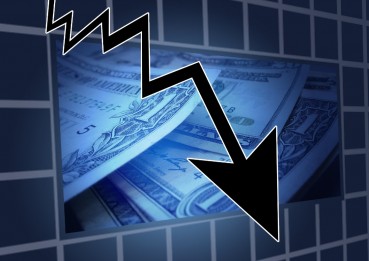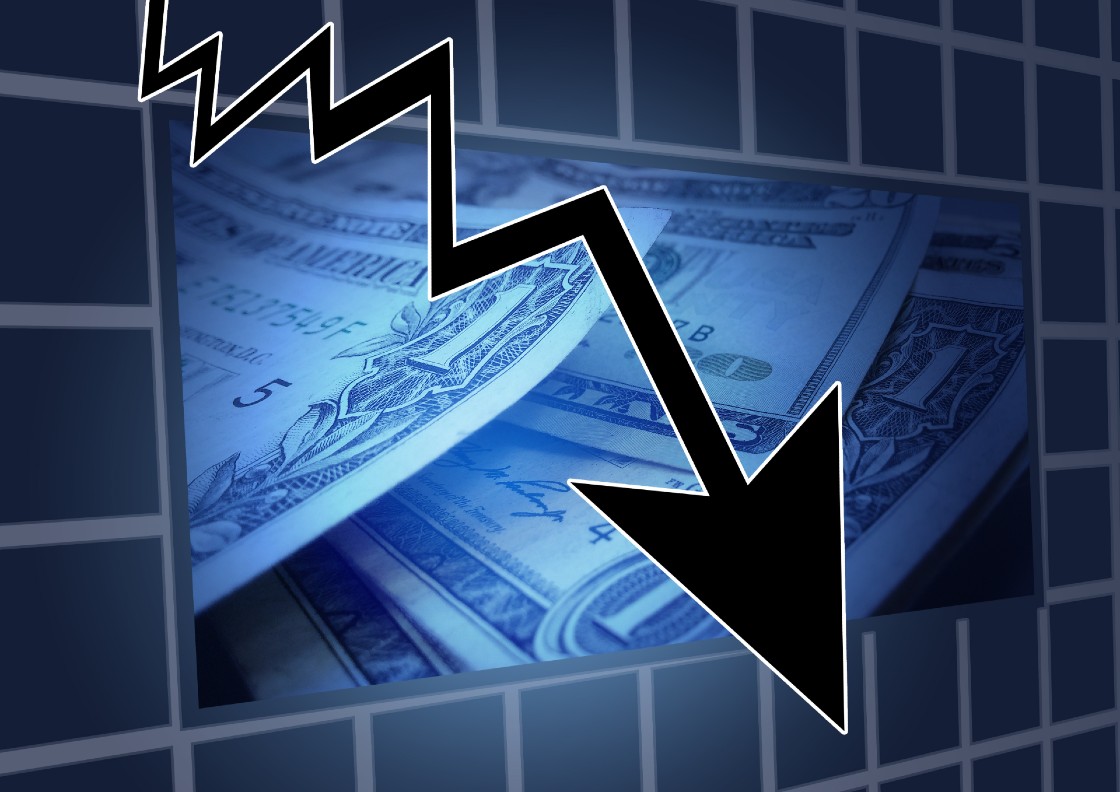
(Pixabay, Gerd Altmann, Public domain)
In a study published by the WB at the end of May 202, the authors recall that the regular economic report for the region from autumn 2019 warned that the economy could face serious risks due to the expected decline in growth rates globally and regionally. The situation has now worsened due to the pandemic.
Analysts say it is certain that many jobs will be cut in the Western Balkans and that without an appropriate response at least 400,000 people could fall into poverty, with the middle class being the hardest hit. “Many jobs are temporary or in the informal sector. As the COVID-19 crisis develops, it is likely that these jobs will be most affected by the closure, with the annulment of the progress made in previous years. Worst of all, many of these workers may not be able to exercise their social security rights, ”the World Bank study said. It also warned that it is an important challenge for governments to manage liquidity closely to avoid further escalation of the crisis while providing assistance to those most in need.
Decline in the growth
Regional economic growth in the Western Balkans is projected to be negative and is likely to range between -3 and -5.6 per cent. Such a decline is predicted provided that the pandemic in Europe begins to slow down soon, which would then mean that restrictive measures can be lifted and that recovery can gradually begin in the second half of 2020. The unfavorable scenario assumes the continuation of the pandemic and the abolition of control measures by the end of August, and the beginning of the recovery of economic activity only in the last quarter of 2020.
The worst projections are for Kosovo, which in the case of a more favorable scenario expects a decline in GDP of 4.5 per cent, and in the case of more unfavorable development of the situation, that decline would amount to as much as 11.3 per cent. Similar forecasts apply to Montenegro, which in the event of a rapid halt to the spread of coronavirus expects an economic decline of 5.6 per cent, and in the event of a continuation of the pandemic until late summer, the decline would be as much as 8.9 per cent. The projections for Albania are also on that track, where they can count on a 5 or 6.9 per cent drop in GDP. Bosnia and Herzegovina, which is projected to fall by 3.2 per cent and 4.2 per cent, is somewhat better off. Serbia would face a negative rate of 2.5 and 5.3 per cent, respectively, and the least damage would be suffered by Northern Macedonia, whose economy is estimated to fall by 1.4 to 3.2 per cent.
„While it is difficult to predict the economic impact of a pandemic, there is no doubt that it is confusing the whole region because it burdens the health system, paralyzes economic activity and threatens people’s well-being,” said Linda Van Gelder, WB’s director for the Western Balkans. Recovery from the aftermath of the COVID-19 pandemic is possible in the medium term, but the report will depend on the length of the blockade measures, as well as the measures taken by the authorities in the region to deal with the consequences. The countries of the Western Balkans will share the fate of economies around the world due to the pandemic, and this year they will sink into recession, which in the worst-case scenario for some of them means a drop in the gross domestic product (GDP) to 11.3 per cent. How much of this challenge will realize, depends on how long the economic downturn will last, because the future will significantly determine the pace at which capital and liquidity reserves will be depleted. „Wherever there is room for monetary or fiscal policy, now is the time to use it to maintain the productive capacity of the economy and the functioning of the market, and to support and save economies and livelihoods,” WB’s analysts point out.
For now, the countries of the Western Balkans have announced individual actions to help their economies, while the broader economic context is in the background. Implementation of initiatives for stronger cooperation between the six economies of the Balkans would create conditions for a better life for citizens, as regional co-operation could be a lifeline for the economies of the Western Balkans following the pandemic. The first result of the cooperation is the so-called „green corridors”, international transport lines for the transport of food and other necessary goods, which opened on March 13th. The agreement of the Central European Trade Agreement (CEFTA) countries, in which Serbia, Bosnia and Herzegovina, Montenegro, Northern Macedonia, Moldova and Kosovo have been members since 2006, approved a list of food, medicines and medical equipment that crossed borders under an accelerated procedure. It is an example that everyone can organize themselves in finding common solutions so that economic life can run smoothly. It turned out that even after the pandemic, the countries of the Western Balkans, in addition to the basic functioning of supply chains, should find more points of cooperation for the recovery of economies that are otherwise interdependent.
The extent to which the economies of the Western Balkans are threatened by the coronavirus was precisely expressed also by IMF experts, who predicted that Serbia’s GDP in 2020 would be three per cent lower, Croatia’s 9 per cent, the same decline is predicted for Montenegro, and Kosovo almost doubled. The same is happening in Albania, while the forecast of GDP of Northern Macedonia this year fell by 4 per cent. The IMF roughly predicts growth of five to eight per cent for these countries in 2021, while the forecast for Serbia next year is 7.6, for Albania 8, for Kosovo 7.5, for Northern Macedonia 7, Montenegro 6.5 and Croatia 4.9 per cent.
According to the data of the Regional Cooperation Council, an organization built among countries of Western Balkans, out of 350,000 companies in the region, as many as 99.7 per cent belong to small and medium-sized ones, such as restaurants, cafes and individual producers. They will be the first to feel the direct consequences of the crisis. Also, as this organization states, tourism, which makes 10 per cent of the total GDP of the region, suffers a heavy blow. 42 per cent of travel agencies and operators have confirmed that they are reducing costs, among other things by laying off workers. When the pandemic ends, unemployment will hit the weakest the hardest, the standard of living will fall, and business will not be so profitable. It is important to coordinate joint activities for economic recovery after the pandemic, but also the regional framework in order to establish a functioning single market in the Western Balkans, following the example of the European Union. Innovations of the private sector could also help in that.
Looking for solutions
In the end, everything will depend on political leadership and solid economic research. There is a lack of sectoral analysis of what the Western Balkans as a single economic space can provide, whether in the agricultural, energy or some other sector. Each country has its own advantage and it would be good to find a common denominator that would, for example, be based on the model of the European Coal and Steel Community Treaty, which was the forerunner of the European Union. Now it seems that the cooperation can first be in the production of food and standardization of medical laboratories and procedures for the quality of medicines.
Following the pandemic, capital investment programs will need to be intensified, and better selection and wider coverage of social assistance programs will need to remain a priority for government economic projects. Planned investments in energy, infrastructure and tourism at the same time will support job creation in these sectors after the crisis. As poverty is closely linked to unemployment and inactivity, the expected slowdown in all sectors of the economy due to the pandemic and the associated potential decline in employment and people’s earnings are likely to have a short-term impact on the poverty rate. As growth recovers, improving labor market participation will remain key to growth, leading to lower unemployment rates. Increasing agricultural production will be crucial, as most of the poor are employed in this sector, which has one of the lowest productivity rates in the Western Balkans.
The main external risk for the region remains slowdown of the economic growth in the European Union and political tensions in the region. Pressure due to frequent elections and the slow implementation of structural reforms, along with the crisis, will affect the governments’ ability to accelerate economic growth. Although external deficits are expected to be moderate, after 2020, the fiscal burden on the fiscal side will remain high, and if nothing is done about it, the expected improvement in economic growth performance could be delayed and fiscal risks increase (pensions, due liabilities, liabilities of state-owned enterprises). The main internal risk is a prolonged pandemic and a period of protective measures, which could lead to further economic decline. The growing economic crisis, together with the challenging political environment, will make it difficult to implement the adopted socio-economic programs, especially in areas such as infrastructure, energy and transport.
In the final days of Croatian presidency of European Council, Western Balkans received some good news through the Zagreb Declaration. Enlargement is nowhere mentioned as a single political goal but it is a process. In this process, „which has full support for the European perspective of the Western Balkans”, the EU does not come empty-handed. The declaration promises an emergency package for the region worth EUR3.3bn. In doing so, Europe seeks to create strong privileged partnerships that will last as long as generous European financial assistance. But it also calls for an open, clear and honest dialogue. Both sides do not want to talk about the enlargement process and it is obvious that it will not happen soon.
Then why such financial assistance? Again, an attempt is being made to test European strength and a certain geopolitical way forward. If there is no enlargement, what is the model and tactics that the EU will use to prevent the growth of the so-called plebiscitary authoritarianism and geopolitical tensions on its doorstep? This assistance should therefore not be seen as a one-off package only to combat the consequences of COVID-19. It is also a way to downplay the importance of China and Russia in the Western Balkans, as rivals to Europe in the growing multipolar global battle for influence. In simpler terms, Brussels tells the countries of the Western Balkans that they will receive money and care, but that they must separate themselves from the influence of Xi Jinping and Vladimir Putin. It is a bit of a game because there is more cooperation between China and Russia with certain countries within the EU than in the Western Balkans. If Beijing and Moscow are welcome guests in Budapest, Athens, but also in Rome and Berlin, then there is no clear answer as to what the EU will do if they remain beloved interlocutors in Belgrade and Skopje.
Vedran Obućina is an analyst and a journalist specializing in the Croatian and Middle East domestic and foreign affairs. He is the Secretary of the Society for Mediterranean Studies at the University of Rijeka and a Foreign Affairs Analyst at The Atlantic Post.


